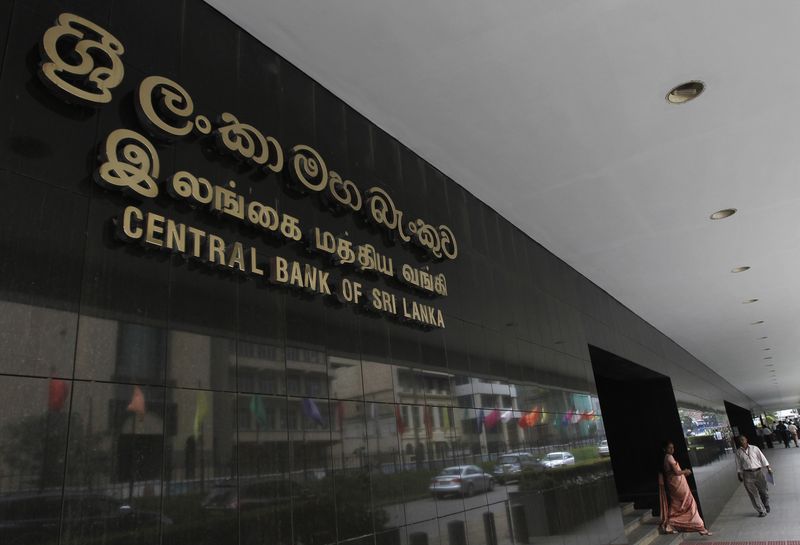By Uditha Jayasinghe and Jorgelina do Rosario
COLOMBO/LONDON (Reuters) -Sri Lanka's central bank said on Tuesday it had become "challenging and impossible" to repay external debt, as it tries to use its dwindling foreign exchange reserves to import essentials like fuel.
The island nation's reserves have slumped more than two-thirds in the past two years, as tax cuts and the COVID-19 pandemic badly hurt its tourism-dependent economy and exposed the government's debt-fuelled spending.
Street protests against shortages of fuel, power, food and medicine have gone on for more than a month.
"We need to focus on essential imports and not have to worry about servicing external debt," Central Bank of Sri Lanka's governor, P. Nandalal Weerasinghe, told reporters.
"It has come to a point that making debt payments are challenging and impossible."
Weerasinghe said the suspension of payment would be until the country came to an agreement with creditors and with the support of a loan programme with the International Monetary Fund (IMF). Sri Lanka starts formal talks with the global lender on Monday for emergency loans.
The country has foreign debt payments of around $4 billion due this year, including a $1 billion international sovereign bond maturing in July. A coupon payment of $78 million is due across two of its bonds maturing in 2023 and 2028 on Monday, though there is a 30-day grace period.
"It is a default. This was inevitable," said Murtaza Jafferjee, the chief executive of brokerage J.B Securities.
"This is a positive for the economy because we were using scarce foreign exchange resources to service our debt when we could not afford to. This will release funds for our own citizens. It was displaced vanity at the cost of our population."
He said Sri Lanka’s decision covers about $25 billion in bilateral and commercial debt, which includes about $12 billion of international sovereign bonds.
"The memorandum today should pave the way to an IMF program, in our view," said Milo Gunasinghe at JPMorgan (NYSE:JPM) in a note to clients, though warned that political uncertainty remained high.
With the government only having begun the process of selecting advisers for debt talks over the weekend, formal negotiations with creditors might only start once appointments have been made, Gunasinghe added.
BlueBay Asset Management's senior emerging markets sovereign strategist, Timothy Ash, said the "only surprise is that it took the administration in Colombo so long to come to terms with the reality on the ground".
"It's logical to declare a payment moratorium until they work out a programme with the IMF and agree terms with bondholders," he said.
Sri Lanka's sovereign dollar-denominated bonds enjoyed healthy gains on Tuesday, with many issues up nearly 2 cents in the dollar, Tradeweb data showed.

Its hard currency bonds mostly trade at deeply distressed levels of just under 40 cents in the dollar while the bond maturing on July 25 last traded at just over 50 cents, according to Refinitiv data.
Governor Weerasinghe said the call on repayment was being taken in good faith, emphasising that the country of 22 million people had never defaulted on its debt payments.